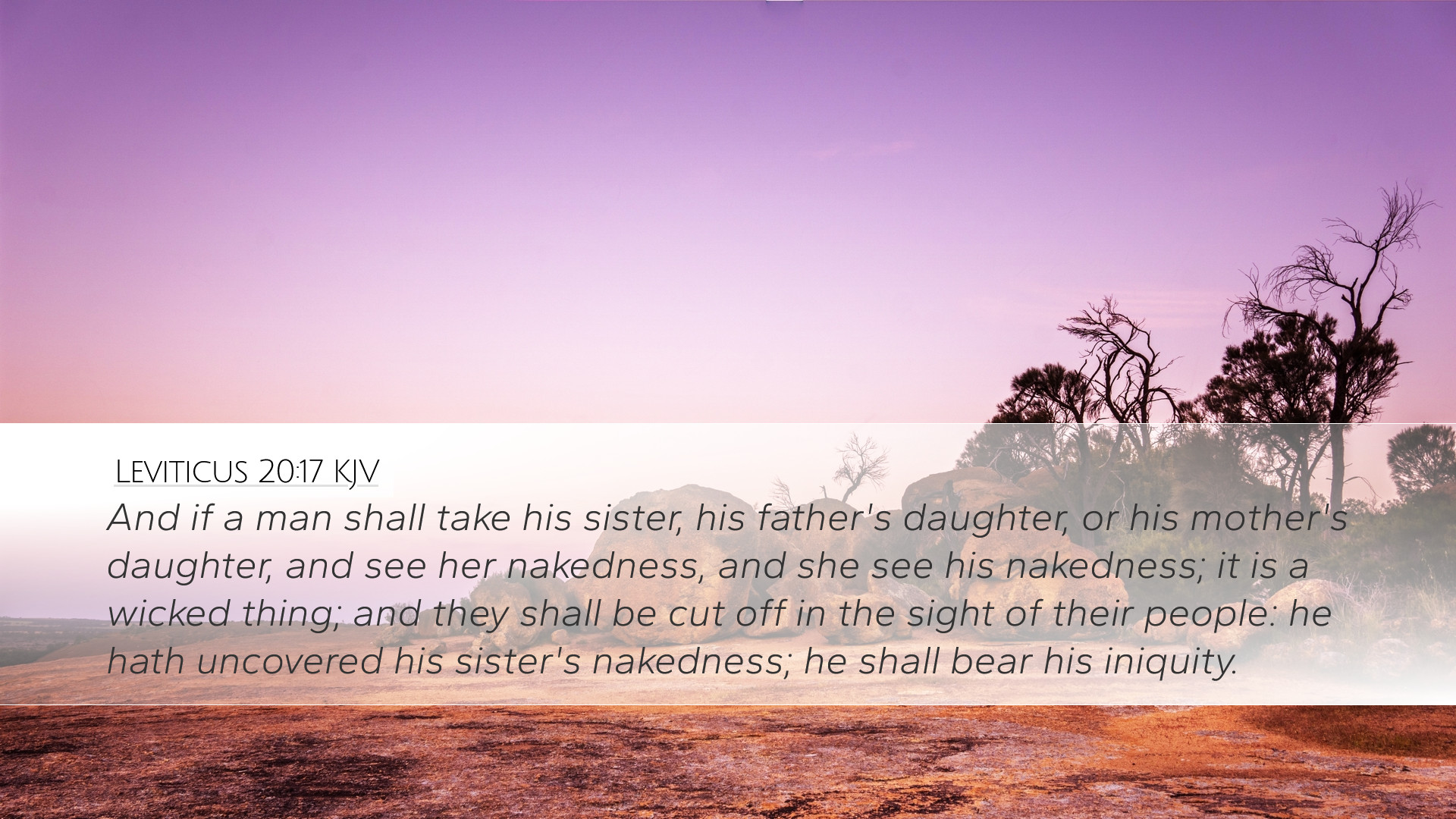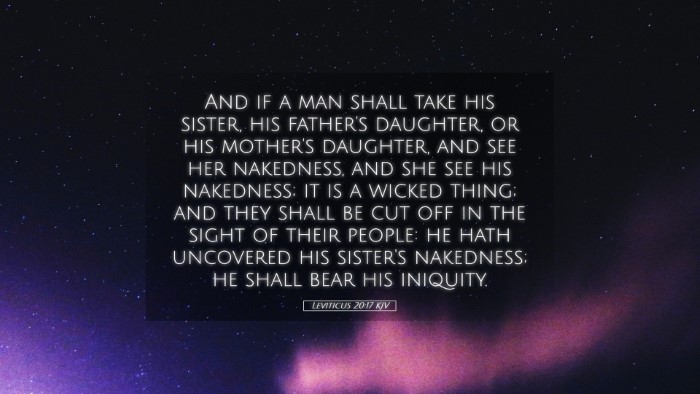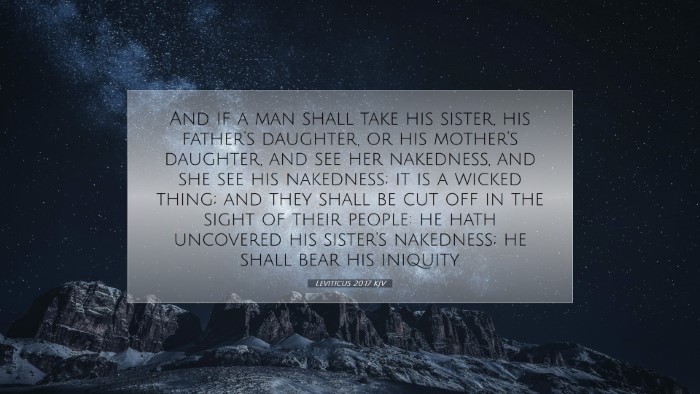Commentary on Leviticus 20:17
Verse Context: Leviticus 20:17 says, "And if a man shall take his sister, his father's daughter, or his mother's daughter, and see her nakedness, and she see his nakedness; it is a wicked thing: and they shall be cut off in the sight of their people: he hath uncovered his sister's nakedness; he shall bear his iniquity." This verse is part of a larger section detailing various laws regarding sexual conduct, purity, and holiness, which are integral to the covenant community of Israel.
Historical Context
This chapter of Leviticus is a critical part of the Holiness Code, which outlines the ethical and ritual conduct expected from the Israelites. The distinct separation from surrounding pagan cultures is emphasized, which often had loose sexual morals. Understanding the cultural norms of the time is key to grasping the gravity of this command.
Theological Insights
According to Matthew Henry, this passage illustrates God’s desire for purity within the family. The equation of intimacy with “nakedness” stresses not just physicality but the spiritual and communal ramifications of such actions.
Albert Barnes notes that this commandment not only forbids incest but also highlights the severe consequences of such actions, underscoring the importance of maintaining the sanctity of familial relationships. This indicates that in God’s eyes, familial bonds are sacred and not to be defiled.
Adam Clarke emphasizes the term “wicked thing,” which suggests that such relations are not simply wrong but morally reprehensible and damaging to the soul and community. The exiled ramifications, “cut off in the sight of their people”, denote a severe social and spiritual consequence, reflecting the seriousness with which such sins are viewed in God’s law.
Moral Implications
This verse exemplifies a broader biblical theme concerning sexual ethics, namely that adherents of the faith are called to uphold righteousness in every aspect of their lives. It encourages a holistic holiness, not just in public appearance but in private relationships as well.
- Consequences of Sin: The notion of bearing iniquity suggests personal responsibility and accountability before God.
- Importance of Community: The idea of being “cut off” is not merely punitive but also instructive; it serves as an admonition to the community about the seriousness of moral integrity.
Applications for Today
Contemporary pastors and theologians might draw parallels to modern ethical struggles regarding sexuality and relationships. The call to maintain righteousness remains integral, and the consequences of violating these divine standards continue to result in individual and communal turmoil.
Reflective Questions:
- How can the church bolster the call to purity among its members?
- What steps can be taken to ensure that families are upheld in holiness and accountability?
Conclusion
Leviticus 20:17 serves as both a historical regulation and a timeless reminder of the covenantal responsibilities every believer must uphold. The insights gathered from public domain commentaries allow for a richer understanding of the text, signaling that God’s laws are rooted in love and the desire for His people to live in harmony and holiness.


